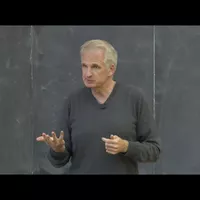Class 10. Global Empires (5)
I'll tell the longer version, Hitler thinks this too.
Hitler thinks that Ukraine is a Kornkammer.
It's a breadbasket.
It's an unlimited supply of food.
He thinks that the Ukrainian peasants are,
in his imagination, the way that the Africans are,
and his analogies towards Ukraine,
although he has many, he uses India, he uses America,
he applies India and America as well,
but the main way he thinks about Ukraine
is from a colonial imaginary that comes from Africa.
So he describes the Ukrainians in Africanizing terms
for a very simple reason.
This is when Hitler grew up.
This is the kind of European imperialism which was going on.
Those are the colonies that Germany lost
in the First World War, were African colonies.
So all down the line,
until we get to the end of this class, it matters,
you know, it matters in three ways,
as I've been trying to say, that the period between,
let's say, 1500 and 1950 is a period of European empire.
It matters because events happen on a different pace,
that things simply are connected in a way
that they aren't before 1500.
It matters because of the various ways people can think
about the world now that the world is all connected.
But thirdly, it also matters because of the kind
of empire or the ideas of empire that are relevant.
Neither Hitler, and we'll get to this,
nor Stalin could've thought about Ukraine
the way that they did without the European domination
of the rest of the world.
Hitler thinks of Ukraine in an Africanizing way.
When Stalin thinks of Ukraine, he says,
"We don't have far-flung maritime empire
the way the British and the French do.
Therefore, we have to carry out something
called internal colonization," right?
So that thought, how everyone judges that thought,
that thought is not possible without the existence,
the transparent example,
the simple everyday facticity of European empire.
Okay, so as I say, I hope that that wasn't too oppressive
and that if it was oppressive,
it was also at least somewhat entertaining.
This is background, right?
This is structure.
These are things that, if we have them in mind,
it will help make some of the events
in our region make more sense.
And don't worry.
I'm going to get back to the Kazaks and the Ottoman Empire
and the Crimean Tatars in earnest on Tuesday.
I'm looking forward to it.
Thanks for being here.
(soft music)

